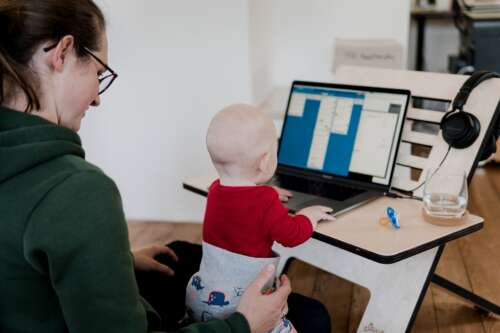
University of Guelph researchers are investigating the negative experiences from the COVID-19 pandemic on the workforce, from work-life conflict to gender inequalities to increased stress.
The study is intended to inform public policy-makers when developing measures to prevent these negative impacts, said Prof. Leanne Son Hing, Department of Psychology.
“Our research will shed light on workers’ negative experiences during the COVID-19 pandemic regarding their conflict between work life and home life in relation to associated outcomes such as increased stress, burnout and reduced productivity.”
The pandemic has resulted in many people working from home or “living at work,” said Son Hing. There is no longer a physical separation between work life and home life, and productivity expectations from employers have remained the same or increased with many employees taking on more responsibilities within their roles, she added.

Son Hing and graduate student Rebecca Lee are conducting an online survey to learn how these changes in the workplace are affecting employees’ lives and to investigate the level of burnout.
For many people, non-work life has also completely changed, said Son Hing. Fear of catching the virus causes constant stress. People also have additional non-work life demands, from looking after children who are doing virtual school from home to caring for elder dependents, she said.

Given that women are often impacted more in these circumstances, the researchers believe the data collection will identify how the pandemic has increased gender inequalities.
“I hope to give a voice to the many people suffering in silence or to those who may not even realize the extent of the negative effects they are enduring that stem from the pandemic,” said Son Hing.
This research is funded by the University of Guelph COVID-19 Research Development and Catalyst Fund.
Contact:
Prof. Leanne Son Hing
sonhing@uoguelph.ca